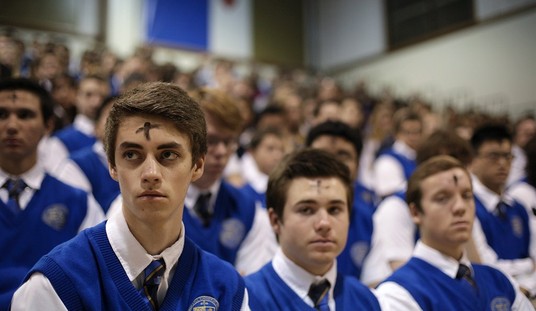The media betrayed a willingness to indulge in misleading and outdated cultural stereotypes when it comes to the South. Taylor Colwell reports for Townhall Magazine.
-------------------
The South has always occupied a special place in the American landscape. As early as the Colonial era, a Southern tradition developed alongside but separate from the rest of the country, handing down a distinctive body of values, customs and stories that has shaped its culture for centuries.
In recent months, several news stories have called attention to the national media’s treatment of the South. Media portrayals of the Paula Deen saga, the Supreme Court’s Voting Rights Act decision, and other relevant stories betray a willingness to indulge in misleading and outdated cultural stereotyping.
Following a blitzkrieg from outlets like MSNBC, CNN, Huffington Post and more, jovial Georgian chef Paula Deen was dropped by multiple corporate partners—Food Network, Smithfield, Wal-Mart, Target, Home Depot, Sears and several others. Deen’s crime: she admitted in a court deposition to using the N-word in a decades-old conversation with her husband. The conversation took place immediately after a black man placed a gun to her temple and robbed her. She said in the deposition, “… that’s just not a word that we use as time has gone on” and apologized on several occasions, but to no avail; corporate America, egged on by the media onslaught, snatched away her livelihood.
At the same time Deen was being excoriated for her private use of bigoted language many years prior, two other public figures escaped media scrutiny for hateful public comments they made in the present.
Recommended
Alec Baldwin, the actor well known for his outspoken liberal activism, took to Twitter with virulently homophobic comments aimed at a reporter who had criticized Baldwin’s wife, writing “[I’d] put my foot up your f---ing a--, George Stark, but I’m sure you’d dig it too much,” and “I’m gonna find you George Stark, you toxic little queen, and I’m gonna f--k you…up.” Baldwin later disabled the Twitter account and apologized, but the incident failed to trigger much media attention, and he remains front and center in Capital One commercials.
Meanwhile, Michael Eric Dyson, a Georgetown University professor and regular MSNBC contributor, said of Supreme Court Justice Clarence Thomas on the network’s show “Martin Bashir,” “A symbolic Jew has invited a metaphoric Hitler to commit holocaust and genocide upon his own people.” Far from begetting disciplinary action or even public statements of disapproval from the network or the university where he teaches, Dyson’s remarks earned him a spot on the following Sunday’s “Meet the Press” and appearances on subsequent MSNBC programs.
There certainly appears to be a double standard when it comes to bigoted comments from well-known people. A liberal Yankee can slander reporters for being gay, and a race-mongering professor can compare black Supreme Court justices to Nazi sympathizers—no big deal. But the minute a white woman with a Southern accent admits to wrongdoing, all bets are off—disparate media outlets refuse to let the topic go, and her business is ruined. While no one (including Deen) is defending her use of the N-word, acute regional stereotyping seems to be at play, not a political one—since Deen actually campaigned for Obama in 2008. ...
While conservative political beliefs are sometimes tied to Southern culture, the media’s real foe is Southern culture itself. Time after time, the progressive movement has proven itself incapable of considering people as individuals, but rather as members of a larger group. This is obvious in the media’s coverage of politics, which nearly always centers on “blocs” of voters and interest groups: women, black voters, Hispanic voters, white voters, etc. For the Left, politics is a continual struggle for power among clashing ethnic and cultural groups. This system of analysis is dehumanizing and deterministic— but it’s the way much of the media process human events.
From this perspective, the world is divided largely into two camps: victims and oppressors. In America, victims include women, racial minorities, gays, and more; the oppressors are nearly always whites and Christians. It’s a perversion of the classical “great chain of being.” Groups that can claim some sort of past persecution—the more the better—are highest on the chain, and groups seen as historically oppressive are lowest. If whites and Christians are low on the progressive victimization chain, then Southerners are the lowest of the low, fit for derision and scorn. Charlton Heston captured this in a speech in the 1990s, saying: “... the God fearing, law-abiding, Caucasian, middle-class Protestant— or even worse, evangelical Christian, Midwestern or Southern, or, even worse, rural, apparently straight, or even worse, admitted heterosexual, gun-owning, or even worse, NRAcard- carrying, average working stiff, or even worst of all, a male working stiff … not only don’t you count, you are a downright obstacle to social progress.”
There are some serious problems with the progressives’ method of historical critique. First, it views existence solely backwards and leaves little room for free will, a hallmark of the human experience. Second, it boxes individuals within categories to which they don’t always neatly fit. To accommodate this failure, progressives must either ignore or attack such individuals (hence media treatments of black conservatives like Clarence Thomas and Tim Scott). Most critically, this worldview leads to intense scapegoating of “historically oppressive” groups.
...continue reading in Townhall's October issue.


























Join the conversation as a VIP Member